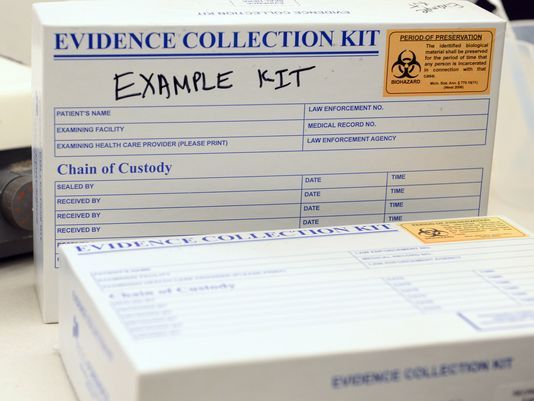Read Original Free Press Article Here
Wayne County Prosecutor Kym Worthy speaks openly about being sexually assaulted while she attended college at Notre Dame. Mandi Wright/Detroit Free Press Mandi Wright/Detroit Free Press
Thousands of boxes of evidence sat untested in a Detroit Police Department storage unit for years as the rapists whose DNA was inside roamed free.
More than 11,300 were left there, some untested for decades, while the assaults kept happening, while more people became victims. Some of the perpetrators were serial rapists, and went on to attack as many as 10 or 15 more times.
The kits were discovered in 2009, and since then, there has been an ongoing effort to raise the money needed to process each kit, investigate the cases and bring the perpetrators to justice.
Seven years later, about 600 of those rape kits remain untested, said Wayne County Prosecutor Kym Worthy. But among the kits that have been through the testing process, 784 serial sexual offenders were discovered in 40 states.
Active investigations are under way for 334 of the suspects and at least 1,042 others are awaiting investigation. Seventy-eight people have been convicted so far.
It’s been slow and tedious work, said Kimberly Hurst, the founder and executive director of Wayne County Safe, which does the forensic exams of sexual assault victims in Wayne County and collects the evidence for rape kits.
“It is frustrating that it has taken this long,” Hurst said, explaining that once Wayne County Safe collects the evidence, the kits are sealed and then sent off to a lab for processing. If a DNA match is found, police and prosecutors work to bring that person to justice. Wayne County Safe often works with the victims with counseling and support, and often testifies on the evidence in court.
“Nothing is quick, and nothing is instant,” Hurst said. “This brought about a culture change, and anything that shifts the culture takes time. This has been revolutionary for all the agencies involved.”
The discovery of Detroit’s untested kits sparked a national discussion of the problem, and cities around America went looking to see whether they, too, had untested kits. As many as 400,000 were found nationally in cities as far away as Las Vegas and Dallas and as nearby as Toledo, according to Enough SAID, which was formed in 2015 as an independent collaboration among the Michigan Women’s Foundation, the Wayne County Prosecutor’s Office and the Detroit Crime Commission to help resolve this issue in Detroit.
One reason it has taken so long to process all these rape kits is money, Worthy said. It costs about $1,500 to process each rape kit. In 2014, the Detroit Crime Commission negotiated a lower per-kit testing rate, reducing the cost to $490. But additional funding is needed to investigate and prosecute cases as well.
Enough SAID is helping to address the need for money to process these rape kits and see them prosecuted, as is the African-American 490 Challenge. To donate to the cause or learn more about Enough SAID and the African American 490 Challenge, go to www.aa490challenge.org/index.html or www.miwf.org/enough-said.
